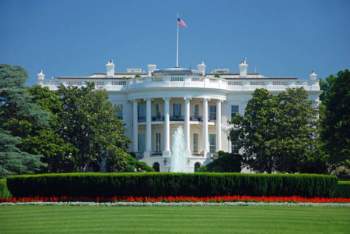
Hatch Act

Popular In Employment
Kentucky Labor Laws Breaks Massachusetts Labor Laws Breaks Washington Labor Laws Breaks Michigan Labor Laws Breaks Alabama Labor Laws Breaks Employment Law Illinois Labor Laws Breaks Age Of A Cashier Preemployment Screening Fair Labor Standards Act Employment Guide Missouri Labor Laws Breaks
The Hatch Act was enacted in 1939 with the purpose of curtailing partisan political activity. The Act prohibited political appointees, outside of the President and Vice President, from taking part in political campaigns. The original Hatch Act prohibits the coercing of all government employees through ways involving the promise of political favors including: promising government employment; withholding of government relief; or punishment for political activities.
Background
The Hatch Act came about from a long dispute over the civil service reform. The Hatch Act was the direct response from allegations that the Works Progress Administration, through the Roosevelt administration, had been using political coercion during the congressional campaigns of 1938. The Hatch Act was originally intended to curtail briber of voters and restricted political campaign activities by federal employees. It prohibits the funding from public works projects for political gain and promises of jobs, contracts, and financial assistance in order to coerce campaign contributions.
What does the Hatch Act do?
WHO DOES IT APPLY TO?
In its current form the Hatch Act restricts the political activities of individuals employed by State or local executive agencies in connection with programs financed in whole or in part by the federal government, including loans and grants. The areas of State and Local government that are often involved in financial assistance from the federal government include: public health, public welfare, housing, urban renewal and area redevelopment, employment security, labor and industry training, public works, conservation, agricultural, civil defense, transportation, anti-poverty, and law enforcement programs.
WHAT IS PERMITTED?
Under the Hatch Act, as it was amended in 1993, employees of the federal government are permitted to: be candidates for public office; register and vote; assist in voter registration drives; express opinions about political issues; contribute money towards political organizations; attend and be active at political meetings; be an active member of a political party; campaign for laws, ordinances and referendums; campaign for or against a candidate; make campaign speeches; distribute campaign literature; and hold office in political parties.
WHAT IS PROHIBITED?
The Hatch act is specifically designed to prohibit certain activities by government employees. These prohibitions include: engaging in political activity in any government office; engaging in political activity while using a government vehicle; engaging in political activity while wearing a government uniform.
PENALTIES
Federal employees who violate the Hatch Act are subject to dismissal from their positions. Upon review by the board the penalties may be mitigated to suspension without pay for no less than 30 days. Factors to be considered by the board include: the nature and extent of the employee's political participation; the employee's motive and intent; whether the employee received the advice of counsel; whether the activities have been since stopped; and the employee's past employment record.
How does the Hatch Act apply to State and Local Employees?
The Hatch Act, as amended in 1940, also applies to State and Local government employees. Each State and Local employee "retains the right to vote as he chooses to express his opinions on political subjects and candidates."
Constitutionality of the Hatch Act
Since its inception to Hatch Act has caused controversy over its, alleged, curtailment of free speech. The Supreme Court of the United States ruled on the validity of the Hatch Act in United Public Workers v. Mitchell in 1947. The case stemmed from a number of executive branch employees arguing against the constitutionality of the provision in the Hatch Act prohibiting the active participation in political management. In its holding the Supreme Court upheld the Hatch Act by stating that "Courts will interfere only when regulation passes beyond the general existing conception of governmental power. That conception develops from practice, history, and changing educational, social and economic conditions." The Court went on to note that the provisions in the Hatch Act do tend to violate the First, Ninth and Tenth Amendments but concluded that these liberties are not absolute and there are limitations; especially when the behavior of government employees are involved.
The Supreme Court again addressed the constitutionality of the Hatch Act in Oklahoma v. United States Civil Service Commission. This case was decided the same day as United Public Workers v. Mitchell and conclusively determined that the Hatch Act is constitutional as applied to State and Local employees. The case centered on a member of the State Highway Commission of Oklahoma and his involvement with a fund raising campaign for the Governor of the State. The United States Civil Service Commission determined that the activities violated the hatch act because the constituted taking part in a political campaign. Essentially, the court said that when the State took money to fund the State Highway Commission it availed themselves of the federal government's provisions concerning the Hatch Act.
Controversy over the Hatch Act
Until the amendments to the Hatch Act in 1993 the Act was attacked due to its rigidity in its enforcement. Under the Hatch Act all federal employees were barred from political activities under the color of their title; this included postal employees and other low level federal, state and local employees whose employment was based on federal subsidies. It was argued that their position in the workings of government was essentially non-political and as such they should be able to act in the political forum.
The 1993 amendments to The Hatch Act
In 1993 the Hatch Act was amended once again. This time the amendment substantially curtailed the prohibitory nature of the act towards federal employees. As amended the Hatch Act now permits some form of partisan participation in political campaigns.
More about the Hatch Act
The Hatch Act of 1939 is a law that places strict limitations on the political activities of federal employees in the executive branch from engaging in political activity. The president and vice-president, of course, are exempt from this prohibition. The law expressly prohibits civil servants from having membership in communist and fascist organizations, due to the state goals of these organizations to overthrow the elected government.
Brief History
Prior to the introduction of civil service examinations, these jobs were political tools handed out to partisan supporters and political contributors. This system of corruption, known as patronage was mostly impaired by the time of this law’s conception, but the New Deal related Works Progress Administration (WPA) gained the perception as a political arm of the Democratic Party, by way of promising jobs and other incentives to vote for democrats. This was the primary reason for the Hatch Act, proposed by Democratic Senator Carl Hatch to ban public funds for the use of political activities. This act was called “An Act to Prevent Pernicious Political Activities” and aimed to de-politicize the civil service. The most stringent of prohibitions were rolled back in the 1990s, but there remain checks on public officials to prevent outright endorsement or other abuses of power stemming from their influence.
Original provisions to the Hatch Act
Public employees may not use public funds to promise jobs, government contracts or job promotions, financial assistance and other incentive to induce political loyalty. Public funds designated for public works and relief efforts (as per the provisions of the WPA) could not be used for a political tool to support the ruling party.
Amendments to the Hatch Act
1940 – Amendment to Hatch Act now includes state and local employees partially paid by federal funds. The amendment also capped the spending limit on political campaigns at 3 million and individual campaign contributions at $5,000.
1993 – The Hatch Act Reform Amendments allow public employees to join and participate in partisan political campaigns, although not whilst working as representative or their respective branch of government.
How is the Hatch Act administered?
The United States Office of Special Counsel is responsible for good governance practices and as a result, has authority over civil service reform and whistleblower protection, in addition to checking the extent of partisan politics in supposedly non-political federal institutions. The OSC is responsible for investigating violations of the Hatch Act and recommending penalties, including dismissal from employment. Agencies that rehire or fail to fire employees in violation of the Hatch Act will be subject to loss of federal funding.
Which employees are banned from engaging in political activity?
Any civil service employee that works for an organization that receives federal financial assistance is covered by the Hatch Act. This includes organizations that provide housing assistance, labor training, conservation, transportation and law enforcement. Employees on leave are also forbidden from engaging in political activity under the Hatch Act. Some private organizations, such as non-profits that administer to federal programs, such as Head Start are also covered under the Hatch Act. The employees are banned as they should not subject nor be subjected to political pressure or have the funding of their organization or agency dependent on political patronage. Similarly, the use of public funds to influence candidates is a clear violation of US law, which is covered when a public employee advocates for partisanship.
Which employees are not banned from engaging in political activity?
Employees who do work with federally financed activists as part of their job function are not covered by the Hatch Act. Employees of educational and research institutions, such as administrators and teachers, are also exempt from the Hatch Act. The chief executives of local, state and municipality governments and individuals holding public elected office are also allowed to engage in political activity.
What are activities prohibited under the Hatch Act?
Employees covered by the Hatch Act may not represent a political party in a partisan election. Nor should that employee use authority derived from his or her position as a public employee to intervene or influence the election or dedicate public resources to aiding any party in a partisan election. There may be additional prohibitions under state law, but the provisions of the Hatch Act cannot be altered by state laws.
Members of federal law enforcement, intelligence, judiciary and the Federal Election Commission are subject to the most stringent of regulations. Political activities prohibited for this class of employees include making speeches, holding rallies, distributing material or organizing meetings to help a political candidate. Additionally, they may not support a candidate on any medium, including the internet.
Lesser federal employees are subject to less stringent restrictions on their political activity but there remains a similarity with the stringent regulations on the other class. For instance, a sheriff appearing in uniform at a political rally to make a speech supporting a candidate is considered inappropriate. Use of a government vehicle to get to the rally or engaging in political activity while in the government office would also be inappropriate. He may however, make the speech for the candidate when not in uniform and not while acting as a representative of his organization.
Unlike the strict restrictions place on federal law enforcement and election commission workers, these employees may by active in the political part of their choice, including volunteering for campaigns and campaigning for or against a candidate in a partisan election. They must take care to avoid using public facilities to engage in allowed political activity, including supporting a partisan candidate on the internet while at work.
Political contributions are heavily restricted under the Hatch Act and public employees must not accept political contributions, with very few exceptions for labor organizations.
What activities are allowed under the Hatch Act?
Despite these rules, even the most restricted employees may still vote and contribute their money to political candidates and causes. They may also participate and run in non-partisan elections. Referendums, constitutional amendments and municipal ordinances are not covered by prohibitions in the Hatch Act, allowing the employee to support or speak against these initiatives.



















